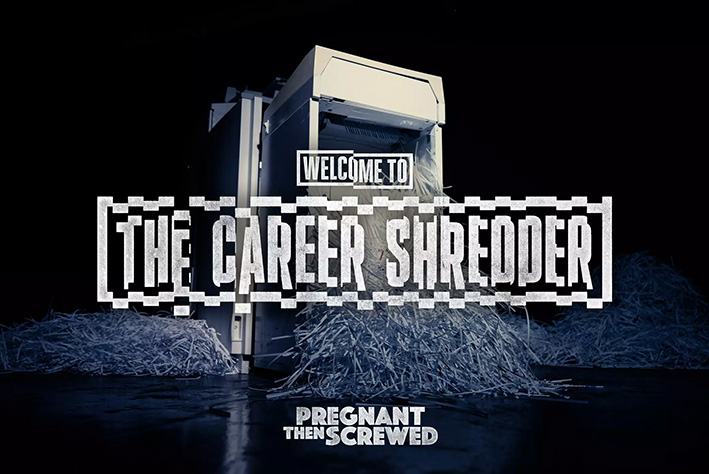Why are we content to be careless people?

Opinion
From slapdash return-to-office mandates to ignoring the untenable pressure on working mothers, we must stop being careless with women’s careers.
“You weren’t responsive enough.”
“In my defence, I was in a coma for some of it.”
This jaw-dropping exchange, alleged to have taken place between Facebook’s former director of public policy, Sarah Wynn-Williams, and her line manager at Facebook, is laid bare in unflinching details in her memoir, Careless People.
The conversation, in effect a performance review of her maternity leave, underlines the gap between the feminist rhetoric espoused by former Facebook chief operating officer Sheryl Sandberg and the lived experience of Wynn-Williams.
While her story is hers and hers alone, the brutal truth that motherhood is incompatible with a career in media remains.
The career-shredder
According to Pregnant Then Screwed, a woman who is pregnant is fired every seven minutes in the UK.
The charity recently created a powerful campaign featuring a live stream of a giant physical shredder to bring to life the cuts to women’s confidence and financial wellbeing that still come hand in hand with motherhood.
Its passionate and talented campaigning team collect stories of real people that need to be heard, from the woman who was sacked on the day of her stillborn daughter’s funeral to another who was called to a Zoom meeting to be let go while she was in hospital.
For the media industry, you don’t have to go far to find these stories. I hear them most weeks. We are still setting mothers up to fail.
Return-to-office mandates are disproportionately impacting women with caring responsibilities. While it’s vital to recognise the leaders silently and steadfastly doing everything in their power to support women facing impossible choices, working round the clock to create business cases and flexible working requests, this rollback in equality is not inevitable.
We must collectively question why, as an industry, we are content to be so endlessly careless with women’s careers.
A culture of “move fast and break things” not only means that always on is never wrong, but leaders face no accountability for their actions.
Workplace discrimination, maternity discrimination and sexual harassment are still dismissed as poor choices by women. The feminism of Lean In helped leaders learn that inclusion can be built on little but empty words.
Toxic myth
Sandberg’s Lean In failed in building meaningful, intersectional change. Instead, it constructed the ultimate distraction: a glass house of wealthy white women content to build their personal brands ahead of collective progress.
Lean In was the blueprint for a brand of corporate responsibility in which leaders were celebrated and venerated for their empty rhetoric.
In effect, they were able to build public profiles with no foundation in their real-world impact. This disconnect is the oxygen of an industry in which leaders can endlessly claim to “take this issue very seriously” while taking precisely zero action.
Over a decade on from Lean In, this disconnect between words and deeds continues to gaslight mothers working in the media and technology industries. They are held solely responsible for solving problems not of their own creation and judged relentlessly in the process.
Invisible art of mothering
It is a judgement that is painfully apparent in many of the reviews of Wynn-Williams’ book. Reviewers content to diminish Wynn-Williams for her role and inaction at Facebook simply could not recognise their own careless disregard for her brutal and brave depiction of modern motherhood.
They don’t know what it takes to get back to work after maternity leave and, judging from many of the reviews, can’t even recognise the need to explore this territory when presented with a map.
How can you know something is groundbreaking if you never acknowledge or understand the ground that mothers stand on? In the media industry, for many mothers that ground is quicksand.
The fundamental truth remains that, in 2025, the majority of experiences of modern motherhood in business remain entirely wordless. We tell women to raise their voices while the industry continues to silence them with non-disclosure agreements without fear of reproach.
Wynn-Williams’ refusal to silently endure the career-shredder is a phenomenal act of bravery. Her book, which legally she is not allowed to promote, is a must-read.
Women who choose to speak in a wider media ecosystem that diminishes and discredits them for daring to question the status quo are constantly attacked. Stop blaming them for not thriving in systems designed to suffocate them.
We cannot collectively continue to put women through a career-shredder while we turn the other way. When women cannot speak up, it is on all of us to turn up the volume. Their voices matter. Accountability matters.
Real leadership is so much more than empty platitudes.
 Nicola Kemp has spent over two decades writing about diversity, equality and inclusion in the media. She is now editorial director of Creativebrief. She writes for The Media Leader each month.
Nicola Kemp has spent over two decades writing about diversity, equality and inclusion in the media. She is now editorial director of Creativebrief. She writes for The Media Leader each month.
Career Leaders: The Media Leader‘s weekly supplement with thought leadership, news and analysis dedicated about media careers, training, development and wellbeing.
Sign up to our daily bulletin for free to ensure you stay up to date and get Career Leaders every Tuesday.




